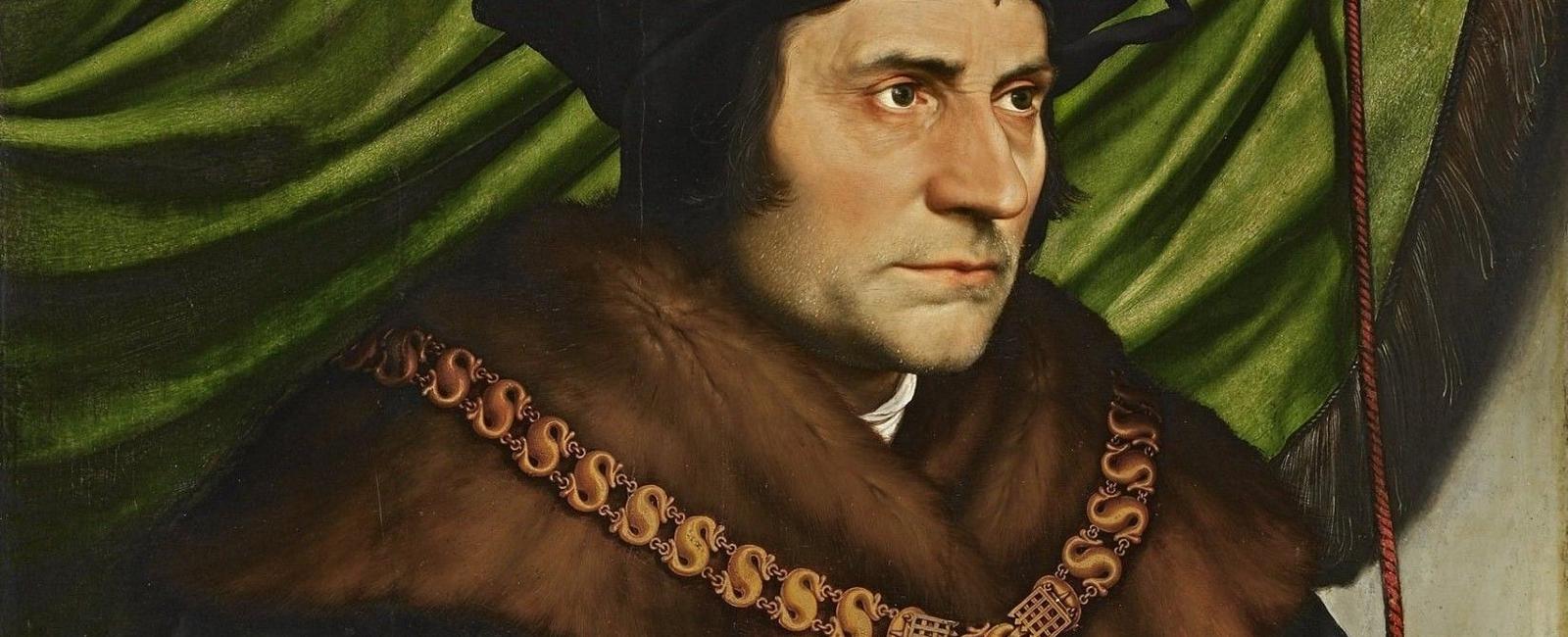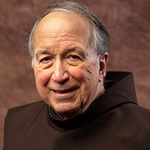Saint Thomas More: Secular Franciscan and Martyr

On June 22, Catholics celebrate the memory of St. Thomas More (1478-1535), celebrated humanist, author, statesman, devoted father and husband, who died as a martyr on July 6, 1535. According to longstanding tradition, he was a Secular Franciscan.
Immersed in humanistic scholarship
Born in London in 1478, the son of the prosperous lawyer John More, Thomas received an excellent primary education, and at the age of 12 became a page to Archbishop Morton of Canterbury, the chancellor of England, who immersed him in humanistic scholarship.

The celebrated portrait of Thomas More by Hans Holbein the Younger (1527), Frick Gallery, New York.
Study of law
In 1492 Thomas began studying at Oxford but he left to study law in London. By the late 1490s More, a young lecturer in law, had joined a circle of prominent humanist scholars: John Colet, Thomas Linacre, and Erasmus.
Deeply drawn to prayer and an ascetic life
More also was deeply drawn to prayer and an ascetic life. For two years he lived near the Carthusian monastery (Charterhouse), often taking part in the daily spiritual exercises of the monks and frequenting their library.

Thomas More's personal crucifix.
Known for eloquence and integrity
Despite the attractions of the monastic life, More ultimately decided he could best serve God as a Christian layman. He entered Parliament in 1504 and soon became known for his eloquence and integrity.
Home became center of learning, hospitality, prayer
More married in 1505 and became a dedicated family man. Within six years the couple had four children. More gave his daughters the same humanist education as his son, and his home became a center of learning, hospitality, and prayer.

Sketch of the More family, Hans Holbein (c. 1527).
Advancing in public service
Meanwhile, More's intelligence and work ethic paved the way for advancement in public service. He was named to the Privy Council in 1514 and gradually was given positions of ever-greater responsibility, in the process becoming a close friend and advisor of King Henry VIII.
His famous work “Utopia”
In the meantime, he continued to engage in humanistic scholarship. He wrote his famous "Utopia" in 1516. It was during these years that More most probably became a Secular Franciscan; the Observant friars had a house attached to the royal palace in Greenwich as chaplains, and More became acquainted with a number of them.

From first edition of Utopia (1516).
Defender of Catholic doctrine of the sacraments
When the Reformation broke out, More was moved to support the Catholic faith. He assisted Henry VIII in writing a response defending the Catholic doctrine of the sacraments against Luther and later wrote his own "Dialogue concerning Heresies."

Statue of Thomas More outside Chelsea Old Church, London. The family worshiped here regularly, and More built a chapel for his family's graves.
A rise in politics
Dominic Monti, OFM
Professor of Franciscan Research in the Franciscan Institute of St. Bonaventure University
Dominic V. Monti, OFM, is a Franciscan Friar of Holy Name Province (USA) and currently professor of Franciscan Research in the Franciscan Institute of St. Bonaventure University. He devoted the greater part of his ministry to teaching the History of Christianity, in particular the history of the Franciscan movement. He has contributed two volumes to the Works of St. Bonaventure series and is author of Francis & His Brothers, a popular history of the Friars Minor.

